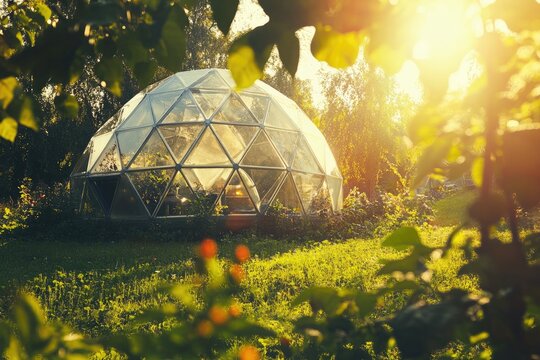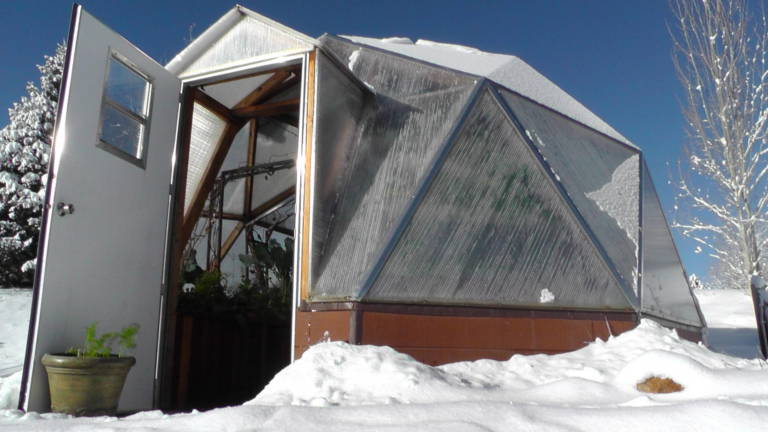Well, I have already lied... you can neither save nor destroy the planet. The Netflix TV series Love Death + Robots was a sort of comic book in cinematic form of CGI, animation, and puppetry presented as an anthology of short films. Much like the 1977 magazine Heavy Metal, its themes obsessively rotated around speculative sci-fi futures, sexuality, and violence. Love Death + Robots was especially fixated upon the leitmotifs of zombies, apocalypse, space travel, and the destruction of Earth. One semi-memorable episode featured tiny zombies overrunning Earth, causing a nuclear war, and blowing the planet into large chunks held together by a loose semblance of gravity. We humans have high opinions of ourselves and it seems our every fantasy these days is that we can destroy the Earth with one false move. Yet even catastrophic nuclear annihilation would result in a long nuclear winter and a reset where it is possible some humans might survive. Sure, their lives would be hell, but chances are their pale, etherically starved descendants might crawl up from underground cities like cockroaches to rule the planet again. Or not. It seems baked into the cake that humans will be gone entirely in a billion years. Ninety-nine point nine percent of life on Earth has gone extinct. We are a hardy species, but we aren't exactly tardigrades or jellyfish.
Humans are in love with the idea they have domination of Gaia, whether it is to destroy her or to save her. There is the delusion we can foment our hatred enough to make it substitute for action, or that if we aim one group against another, we can "save" ourselves from them. Paul Wheaton in his book Building a Better Backyard (Instead of Being Angry at the Bad Guys) puts it best:
"For each person who actually does write a letter or confront the bad guys, there might be a hundred people who simply develop an ulcer."
Building a Better Backyard is a must read and I highly recommend it as well as
Permies.com, the website it often cites.
I own a copy of the book that I am willing to lend by mail for free to anyone who wants it in the Continental US. That said, the book does descend into some regrettable Holier Than Thou awards, lauding various environmentalists for their "negative" carbon footprint because they go "above and beyond" according to the author as environmental influencers. Yet there is no such thing as a negative carbon footprint here on Meatworld. The main takeaway from the book is that we should turn instincts of anger that nobody is doing anything into personal, concrete action. Yes, I agree.
Environmentalism gets nowhere fast because it is so centered around shame. Though it feels good to point out hypocrisy in others, it does absolutely nothing as far as influencing the average person to change, especially when perfection is the goal. Case in point, Greta Thunberg, who has ricocheted from vegan climate activism to inserting herself in the Palestine situation. She's a perpetual child in more ways than one who believes that her anger makes a difference because she feels it so strongly. Her legacy will be a meme about impotent outrage.
In my upcoming book Sacred Homemaking, I emphasize the importance of starting small and where you are. The only way we are ever going to make positive change in this world will be if we discard perfection and appreciate and work with what we have right now. This means looking at what positive things we already have in place and building upon them instead of making a fetish of someone with a "perfect" approach. It means making do with what we have instead of freaking out, even when we are still making do with toxic inputs from industrial sources.
You may already be doing a great deal to help Gaia without realizing it, and you can use Sacred Homemaking's approach of building upon and amplifying the positive in order to go even further. This article will mention only a few bullet points, but I hope that it will inspire you to list what you are doing right and to pile up positive upon positive until your environmental beneficence is overflowing.
Living with family or roommatesThe stigma of living with relatives used to be very strong. My husband and I lived with my parents no less than four times before moving to our little house in the western suburbs of Chicago, and each time we felt acutely judged by all and sundry, including ourselves. For him, it was deeply emasculating not to be the master of his own domicile. For me, it was profoundly painful not to have a space I could call my own. Yet the fantasy of an eco-cabin on the edge of wilderness is far more environmentally expensive than a shared house or apartment where people live cheek to jowl. For one, apartments don't require much climate control -- when my husband and I lived in apartments, we almost never turned on the heat in winter. For those who don't live out in the country, your close proximity to stores and work means that you're not driving anywhere near as much as your stranded rural counterpart every time you need something or go to your job.
Going the extra mileGet in the habit of both saying and "doing" thank you to the people you live with. During the four times my husband and I lived with my folks, I never left a room messier than I found it. During the last two year stint, I cooked at least five communal meals a week, plus snacks and treats the entire time. I made sure I was contributing even when I did not feel like contributing. As a result, living with my parents was an experience for which I was grateful and will always be grateful. I am especially grateful for the times with my father, who is no longer with us. I got into the habit of saying "thank you" as well. "Thank you" starts awkwardly, but once you are used to the habit and don't allow any good deed to go unrecognized or unthanked, you will find the energy reverberates through your life and dramatically improves it.
Eschewing junk and buying usedWe have unofficially entered the era of paring down. Boomer excess with its fine china, curio cabinets, figurines, vacation homes, grounded boats, and storage facilities is giving way to a new age of thrift, re-use, and Make Do or Do Without. Whenever you buy used, whether it is cars, clothing, silverware, or furniture, you are giving life to an item that was headed straight for the landfill.
Going the extra mileJoin a local Buy Nothing group and give things away even if you don't want any of the stuff other members are offering. When you give an item away and free it to its destiny, you say to the Universe that you're not into hoarding and that you would prefer that others make use of your stuff rather than it rotting in your hoard. It's a middle finger to the accumulation Wendigo.
Eating less and eating homemadeUnless you are part of
the high riding Bathroom Class that is currently helping to ruin everything with the copious help of private equity firms, you cannot afford to spend a dollar more on groceries than you're already spending. You're eating in most or all of the time, not for lack of desire to have a meal you didn't cook but because you cannot afford it. A meal at home, as basic as it may be, saves gas, labor, and food waste. If you cook your meals, have done the brave work of mitigating or ending your dependence on convenience food, and that may be an act of necessity but it is also an act of extraordinary willpower.
Going the extra mileTo increase your knowledge as well as your palate, learn to forage your local weeds. Learn which are edible and which are poisonous and everything in-between. Once when I was working in a commercial building, I forgot to pack a lunch and I had no money or time to make a meal. Luckily, it was summer and there was purslane growing in an area where there were not any pesticides being regularly put on the ground. I gathered a bunch of it and that was lunch. Purslane is a superfood, containing more Vitamin C than oranges and an array of Omega 3 fatty acids.
Phasing out commercial cleaners and personal hygiene productsOne of the funnier parts of Sacred Homemaking is the inclusion of a recipe for a household surface cleaner that triples as a leave in hair conditioner as well as a noxious spirit repellant. It works to clean countertops, detangle hair, and to repel demons all at once LOL. Using natural cleaners and deodorants saves tons of money, reduces plastic waste, keeps toxic phthalates and dioxins out of the water and air, and promotes your health and that of those around you.
Going the extra mileMake the homemade equivalent of one cleaning or personal product this week. In my case, I make my own hairspray out of sugar and water: it's simple syrup with some drops of eucalyptus essential oil for scent. Combine coconut oil, arrowroot or cornstarch, and a pinch of baking soda to make a simple deodorant that can be used anywhere on the body. Make the afformentioned triple use surface cleaner by combining one part vinegar to one part water with a dash of essential oils for scent. Always know that almost any commercial product you use can be replaced with a cheap, nontoxic, homemade equivalent.
Not having kids... or having them!If you are one of the many people in my boat who chose not to have children, congratulations, you just did the most impactful thing a human can do to reduce their environmental "footprint". According to a 2008 study, adding a child to the planet can add up to 9500 metric tons of carbon to the atmosphere. Children come with a lot of stuff: diapers, toys, packaging, housing, and the eventual chance he or she will replicate by having more children!
The logical thing to do is to advocate that we humans go voluntarily extinct, right? Well, that has been tried before. The Voluntary Human Extinction Movement, founded by Les U. Knight (let's unite, get it?) is still floundering along to this day, despite having been a mess of interpersonal dramas since its 1971 origin. VHEMT envisions a genteel end for the human race where everyone gets a vasectomy or a tubal ligation and enjoys what is left of civilization as we voluntarily bring it to a screeching halt. It's the movie Children of Men, minus the panic, and it isn't going to happen. The implosion of VHEMT was predictable. I myself chose not to have children. I had myself sterilized in my early thirties. Nevertheless, what is right for me is not right for everyone. If you want kids, please have them.
As Whitney Houston crooned in her song, the children are our future. We cannot get by without them. If you do have kids, bless you. You are doing the world's most difficult job. If you are blessed with children, please do your level best not to raise them as entitled, spoiled products of their age.
Going the extra mileEmbrace different strokes for different folks. If you chose not to have children, shut up and appreciate those who were willing to take on the hard work of parenting. If you do have children, shut up and appreciate those who did not and freed up resources so you and your children could live more richly. Whether you are childfree or childfull, appreciate people for their differences and realize that if everybody made the same choices as you, life here on Meatworld would suck a great deal more, not less.
If you are turning listless anxiety into real environmentalism, choosing to make small improvements instead of spinning your wheels worrying about the machinations of the "bad guys", then you have taken the first steps in the journey of ten thousand miles. Stop feeling bad about what you have not done or what you cannot do and smart small and where you are. Give thanks compulsively.
Earth will take care of herself... eventually. Your job is not to oversee Gaia but to keep yourself in moderation and balance. Stay humble and always strive for small improvements.
 It's almost midnight, and so it's time to launch a new Magic Monday. Ask me anything about occultism, and with certain exceptions noted below, any question received by midnight Monday Eastern time will get an answer. Please note: Any question or comment received after that point will not get an answer, and in fact will not be put through. If you're in a hurry, or suspect you may be the 341,928th person to ask a question, please check out the very rough version 1.3 of The Magic Monday FAQ here.
It's almost midnight, and so it's time to launch a new Magic Monday. Ask me anything about occultism, and with certain exceptions noted below, any question received by midnight Monday Eastern time will get an answer. Please note: Any question or comment received after that point will not get an answer, and in fact will not be put through. If you're in a hurry, or suspect you may be the 341,928th person to ask a question, please check out the very rough version 1.3 of The Magic Monday FAQ here.  I've also had quite a few people over the years ask me where they should buy my books, and here's the answer. Bookshop.org is an alternative online bookstore that supports local bookstores and authors, which a certain gargantuan corporation doesn't, and I have a shop there, which you can check out here. Please consider patronizing it if you'd like to purchase any of my books online.
I've also had quite a few people over the years ask me where they should buy my books, and here's the answer. Bookshop.org is an alternative online bookstore that supports local bookstores and authors, which a certain gargantuan corporation doesn't, and I have a shop there, which you can check out here. Please consider patronizing it if you'd like to purchase any of my books online. A few days ago I had tea with an old friend who runs a small but successful firm in the occult publishing field. He's pushing seventy, though he's in good health, and the firm has younger people involved and will still be purring away when he's gone. The relevance of his age is that the internet is still mostly a foreign country to him.
A few days ago I had tea with an old friend who runs a small but successful firm in the occult publishing field. He's pushing seventy, though he's in good health, and the firm has younger people involved and will still be purring away when he's gone. The relevance of his age is that the internet is still mostly a foreign country to him. 
 Welcome back to Frugal Friday! T
Welcome back to Frugal Friday! T We are now into the fifth year of these open posts. When I first posted
We are now into the fifth year of these open posts. When I first posted  It's just past midnight, and
It's just past midnight, and Welcome back to Frugal Friday! T
Welcome back to Frugal Friday! T We are now into the fifth year of these open posts. When I first posted
We are now into the fifth year of these open posts. When I first posted